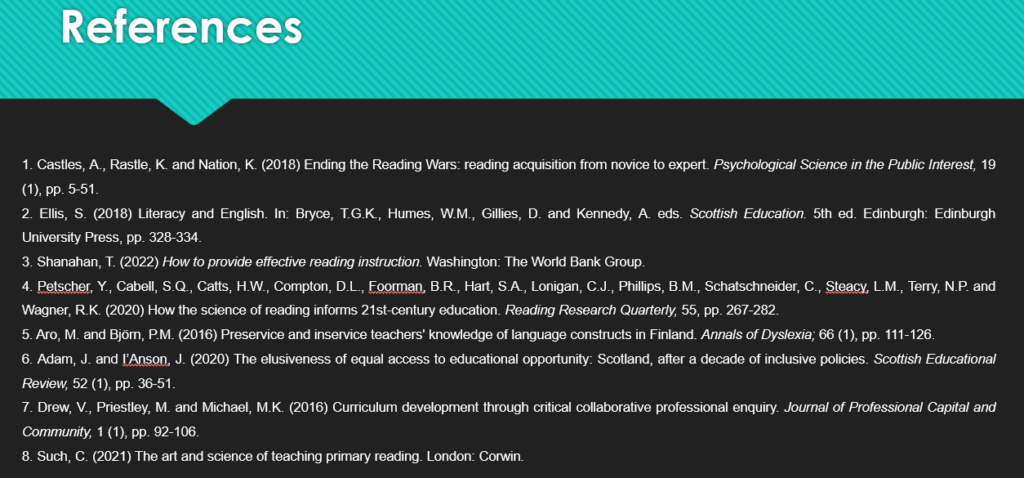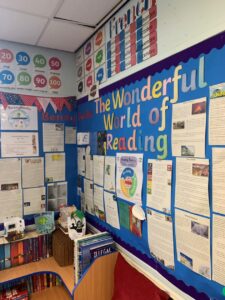 Mark Finlay, class teacher at Bonnybridge PS has been studying children’s reading fluency within his Masters in Professional Educational Leadership enquiry. Using a critical collaborative professional enquiry approach (CCPE), Mark and colleagues designed an 8 week reading intervention which took place in all first and second level classes.
Mark Finlay, class teacher at Bonnybridge PS has been studying children’s reading fluency within his Masters in Professional Educational Leadership enquiry. Using a critical collaborative professional enquiry approach (CCPE), Mark and colleagues designed an 8 week reading intervention which took place in all first and second level classes.
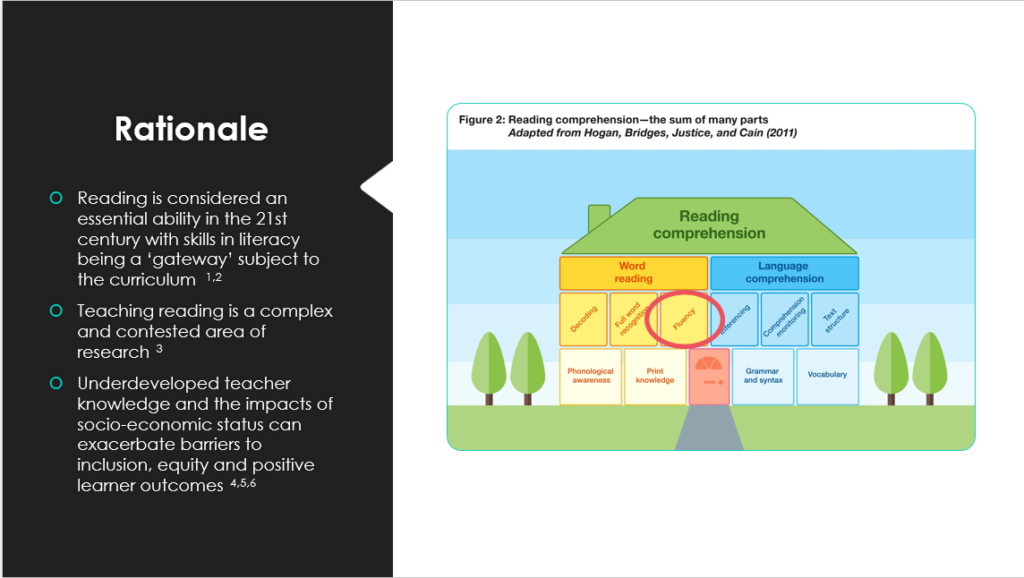
This work was the culmination of careful research into what reading fluency was, and how to ensure an equitable improvement in reading fluency for all children in each class. Mark and his collaborative enquiry group of teacher colleagues were passionate about breaking down reading barriers for all children involved.

Mark presented his research and findings via an online professional learning session during our Falkirk Learning to Achieve Festival. The selection of slides shared here provide a summary of his CCPE enquiry project and its impact.
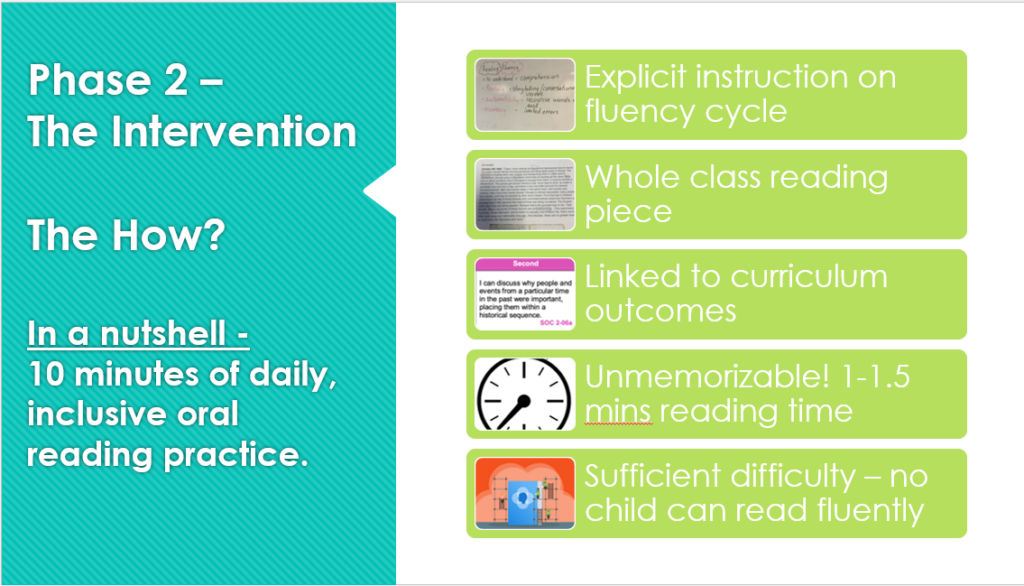
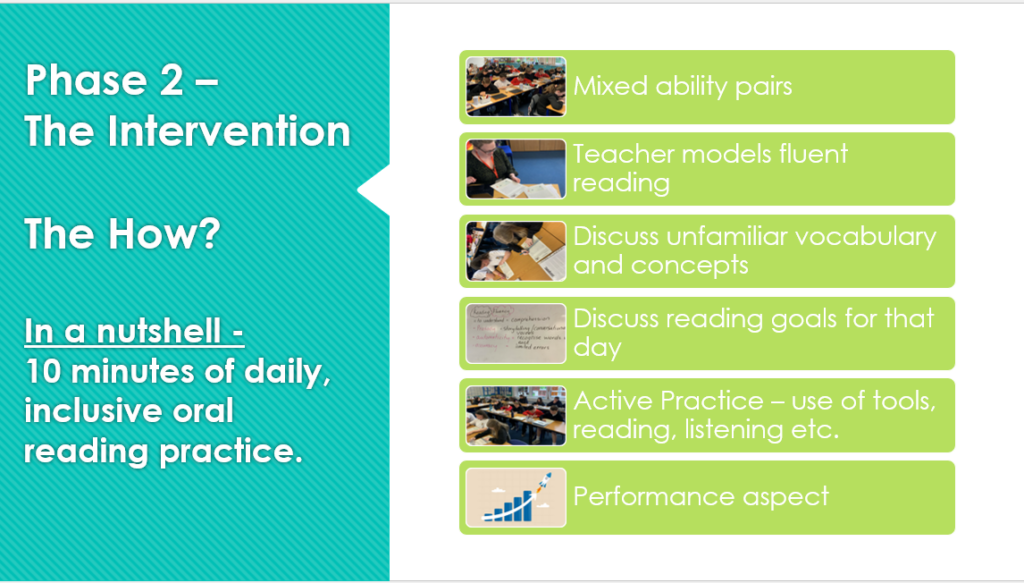
The intervention or test of change which they implemented included:
- Initial teaching of the elements of reading fluency (see visual above)
- 10 minute reading fluency task each morning
- Use of the same passage for all children in each class (different passages for each class)
- Texts were selected to challenge the majority of the children in each class
- Texts were linked to current learning such as the class IDL/topic or discrete literacy learning (e.g. spelling words in context)
- These included fiction and non-fiction texts
- Monday – teacher modelling of reading of this text
- Tuesday to Thursday children’s independent reading/practise of reading texts
- Friday “Reader’s Theatre” to share reading.
- Data-gathering methods: Participant observation, teacher journaling and meetings, focus group discussion.
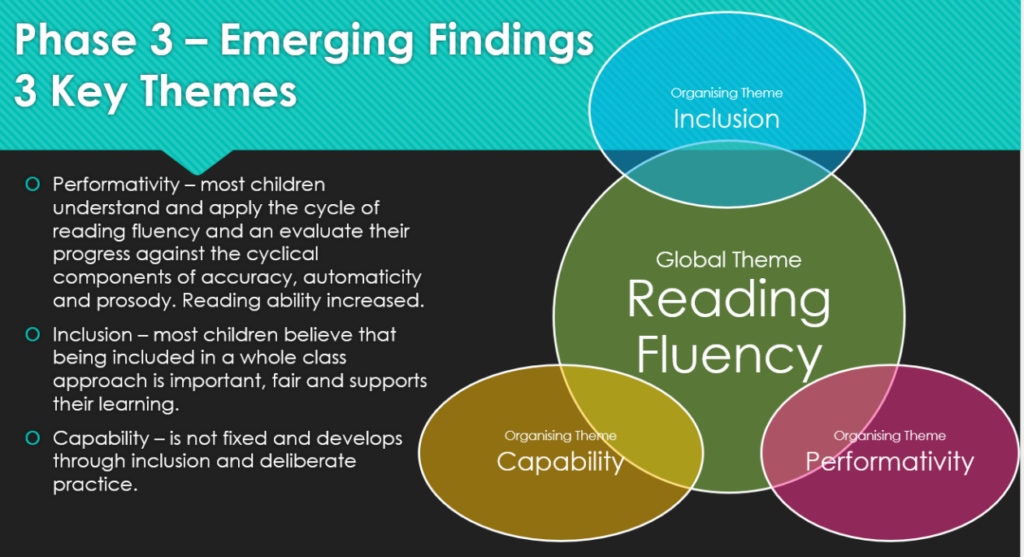
Despite the short timescale of this reading fluency intervention in Bonnybridge PS, Mark and his colleagues have observed the following outcomes so far for children involved:
- They have equal opportunities to attain and achieve to the best of their ability
- They are increasingly aware and in control of their own reading progress
- They are building their knowledge and vocabulary
- Their ability to decode, process and understand words when reading is improved
- Their reading comprehension is better
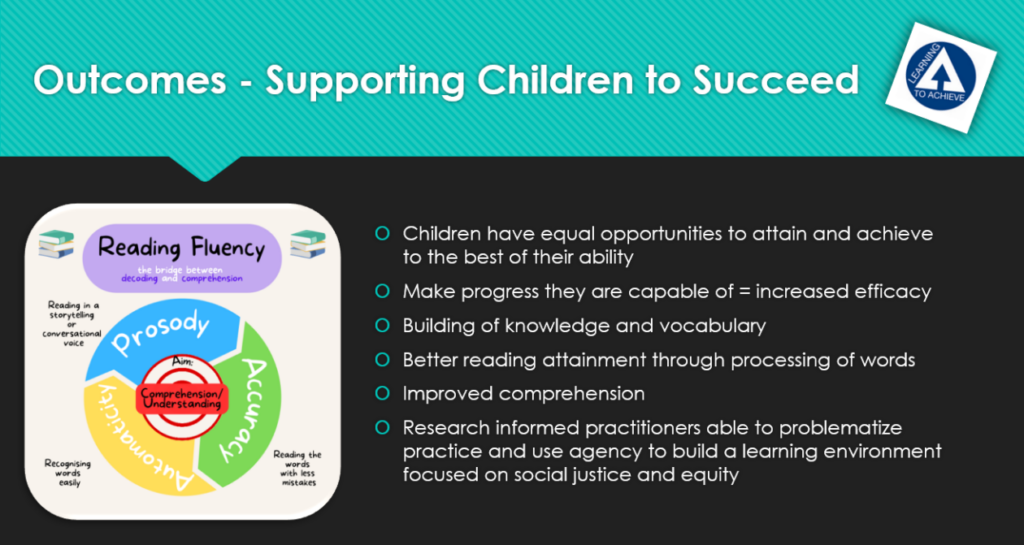
Mark and his colleagues have used their research into fluency to adapt their teaching of reading effectively in practice. They used agency to build a learning environment which is even more focused on social justice and equity. They feel that their CCPE has had a positive impact on the literacy outcomes of most of the children involved.
They will continue to develop their teaching of reading fluency as a key strand of learning within literacy.
